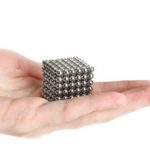Caffeinated products are typically not advised for individuals with irregular heartbeats. However, new research may suggest that they may not have to cut out coffee. Researchers had 1,388 people drink coffee, tea, and chocolate over a one-year period. They used Holter monitors to get 24-hour electrocardiograms. Over 60 percent of participants reported consuming one or more caffeinated food or drink daily. The electrocardiograms revealed no difference in premature beats or episodes of accelerated heart rate.
Premature cardiac contractions are common throughout society. Premature cardiac contractions are associated with increased morbidity and mortality. Experts associate PACs and PVS with caffeinated food and beverages, although there is no data to support this relationship. Caffeinated items may have cardiovascular benefits, recommendations against them may be detrimental.
Cardiovascular Health Study participants with a baseline food frequency assessment, 24-hour ambulatory electrocardiography (Holter) monitoring, and without persistent atrial fibrillation. Frequencies of coffee, tea, and chocolate consumption were assessed using a picture-sort food frequency survey. Out of the 1338 participants each consumed one or more caffeinated product daily. There were no differences in the number of PACs or PVcs or PVCs/h across levels of coffee, tea and chocolate consumption. After adjustment with more frequent consumption of these products, there was no association with ectopy.
In the largest study to evaluate dietary patterns and quantify cardiac ectopy using 24-hour Holter monitoring, there was no relationship found between chronic consumption of caffeinated food and beverages and ectopy.
Read The Full Report: Journal of American Heart Association and The New York Times







